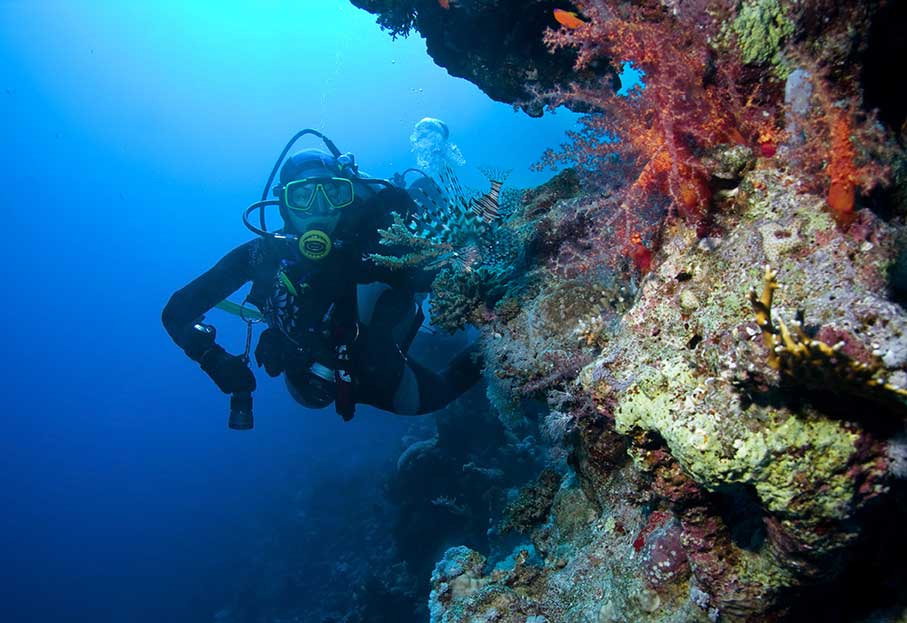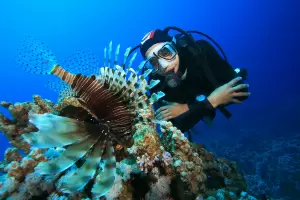
Studying the sea and its complex ecosystem is not only a popular and rewarding career, but is also vital for the continued challenges facing marine environments under threat from human activities. Marine biology is the study of all aspects of life in the sea and the environment on which it depends. This includes marine plants, animals and other how much money does a marine biologist make a day, both vertebrate and invertebrate, in deep oceans, shallow seas and the laboratory. The main aims of marine biology are to improve understanding of the marine world and to understand and predict changes in ecosystems affected by human and natural disturbances. Marine biology is a broad-ranging career. You could go into field work, academic research, laboratory work, consulting, charity, outreach or policy making. Although most roles require strong technical, research and scientific skills, specialising in a particular area is usually required for career progression — whether in coastal management, reef ecology, invertebrate biodiversity, fisheries biology or marine pollution. While many marine biologists have a marine biology or science related undergraduate degree with postgraduate study, the key to breaking into this career is to gain relevant experience, either voluntary or paid. There is a lot of competition for jobs, so seizing opportunities to develop your skillset and prove your commitment is key. Field work contracts are usually between 40 — 50 hours a week although the exact hours are project specific and may be dictated by the tide. This may mean some early starts and hour days on field trips. If you work for a university, consultancy or NGO, your hours are usually more structured, although this may vary if you’re working with academics on particular projects. Research work, whether you’re a postdoctoral research fellow or professor, can be very flexible because you’re managing your own research. However, research jobs are typically offered on short-term contracts months as projects are typically funded by grants. If your undergraduate degree is a broader-based science how much money does a marine biologist make a day, you’ll require postgraduate, marine-related study.
Wildlife Biologists
For You. Start Salary Survey. Salary Research. By Company. By Job Title. By Degree. By Certification. By Skill. By Industry. By School. Salary Negotiation Guide. Cost of Living Calculator. Career Path Planner. Find Jobs. Career Advice. Career Profiles. Current Events. Work Culture. For Your Business. Get a Demo. Price a Job for Free. Compensation Software. Insight Lab. Comptopia Community.

Your Market Worth Over Time
Winter and Hope are the most well-known dolphins since Flipper and have done for marine biology what the television show JAG did for the Navy — make people want to join. Hearing about their miraculous progress, seeing their story in the movies, and becoming immersed in the plight of sea animals across the world will make some people want to become marine biologists. After all, what could be more fun than swimming in the ocean and helping all of the creatures there? Before jumping onto the bandwagon, you may want to know more about a marine biologist salary to decide if this is the correct career path for you. As you would expect, marine biologists work with all types of ocean animals , from the smallest single-celled organisms to the largest whale species. They study how these animals behave and how they interact with the environment. As humans continually pollute the world and over-fish the oceans, life for marine animals becomes more difficult. The role of the marine biologist has become crucial in the fight to keep many of these species from extinction. As a marine biologist, you should expect to do lots of traveling. You will need to go to the rivers and oceans to collect data and specimens. Many learn how to scuba dive to collect data and see samples in their natural habitats. A general biology degree will take four or more years to complete. A person could get entry-level work leading to a career in marine biology with just this degree. This training brings the total education requirement to between five and nine years. Marine biologists work on ships, in laboratories, on beaches, or in marshes. However, they usually have a home base with a public or private company and university. Local or national aquariums and zoos may also employ them, and they even work for the state and federal governments. They do keep statistics on the broader field of biological scientist, but this seems too broad to be useful.
How much money do you make? Marine Biologist vs Scuba Diving Instructor
Learn How To Become A Marine Biologist – Qualification Requirements & Expected Salary
Call Chat online with a career expert. Email us with your career question. Back to top. Alternative titles for Marine Biologist:. Marine biologists study animals and plants that live in the sea, and how they interact with their surroundings. Pay for marine biologists varies depending on their employer, skill level, and what type of work they. This information is a guide. Find out more about the sources of our pay information. It includes looking at where and how seaweed grows, finding new species, and sometimes trying to farm seaweed. Companies already harvest seaweed in New Zealand to use for food products, fertiliser and crop protection. Video courtesy of Great Big Story. To become a marine biologist you usually need to have a Masters or Doctorate in marine biology, marine ecology, marine conservation, zoology or a related science. A tertiary entrance qualification is required to enter further training. NCEA Level 3 is preferred. Marine biologists need to be reasonably fit so they can lift and carry equipment during fieldwork.

Comments
Post a Comment